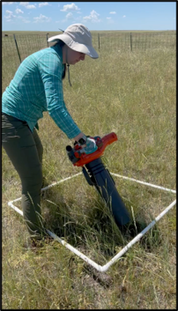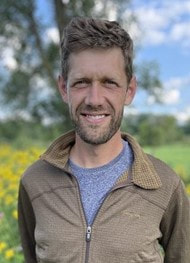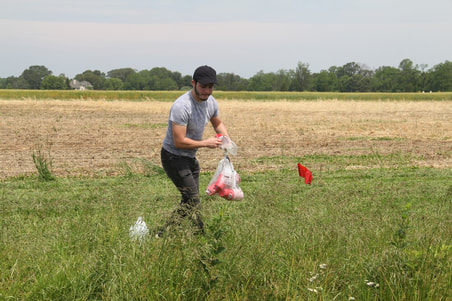 Fig. 1. Dr. Bloodworth sampling for grassland bugs Fig. 1. Dr. Bloodworth sampling for grassland bugs written by: Allison Huysman, Leo Kerner and Ben Burgunder It is a dry day in the Montana rangelands, a vast landscape of sagebrush, prairie junegrass, and purple prairie clover. Dr. Kathryn Bloodworth is vacuuming the plants. She wields a modified leaf blower designed to suck up the insects that call this wide-open space home (Fig. 1). Her goal: to understand the links between insects, grassland plant communities, and drought. Shout out to Entomology Ph.D. student Megan Ma (Shultz Lab & Wood Lab at Smithsonian NMNH) for receiving the prestigious National Science Foundation (NSF) Graduate Research Fellowship, which recognizes outstanding graduate students in science, technology, engineering, and mathematics (STEM).
Insect Terps in Fritz Lab collaborate with NC State University on genomic approach to identify signs of emerging pesticide resistance. From AGNR press release: “Global food security and protection of public health rely on the availability of effective strategies to manage pests, but as it currently stands, the evolution of resistance across many pests of agricultural and public health importance is outpacing the rate at which we can discover new technologies to manage them,” said Megan Fritz, an associate professor of entomology at UMD and senior author of the study. “I'm really excited about this study, because we're developing the framework for use of genomic approaches to monitor and manage resistance in any system.” Check out full AGNR press release here>>
Share your colleagues exciting work on social media (X , facebook) or wherever & however you like to spread science. "Legacy effects of long-term autumn leaf litter removal slow decomposition rates and reduce soil carbon in suburban yards," out in the journal Plants, People, Planet, is one of Burghardt Labs latest pubs. Their study finds that in places where people historically have left their fallen leaves to decompose, without removing them, the soil holds up to 32% more carbon on average. Check out AGNR's press release here. Includes quotes by Max Ferlauto and suggests some ways one can adopt leaf leaving practices in the landscapes they manage.
Share your colleagues work via facebook, X or over your yard fence to a neighbor.
[Seminar Blog] Designing and managing agricultural landscapes for insect driven ecosystem services4/2/2024
 Dr. Nate Hann Dr. Nate Hann written by: Brendan Randall & Angela Saenz A brisk, foggy morning; the sun rises on a midwest farm. Corn stalks sway for as far as the eye can see, seemingly the only life around. If one looks carefully, however, one will find the farm is teeming with life. Dr. Nate Haan is fascinated by the diversity of organisms on farms and how we can understand their ecology to improve farm sustainability and conservation of native biodiversity. Now an assistant professor in the Entomology Department at the University of Kentucky (UK), he is excited to answer fundamental questions about how farm management practices affect insects. In his seminar talk, Dr. Haan presented various approaches to test his central research question–does management affect insects in agricultural landscapes? |
Categories
All
Archives
June 2024
|
Department of Entomology
University of Maryland
4112 Plant Sciences Building
College Park, MD 20742-4454
USA
Telephone: 301.405.3911
Fax: 301.314.9290
University of Maryland
4112 Plant Sciences Building
College Park, MD 20742-4454
USA
Telephone: 301.405.3911
Fax: 301.314.9290


 RSS Feed
RSS Feed




